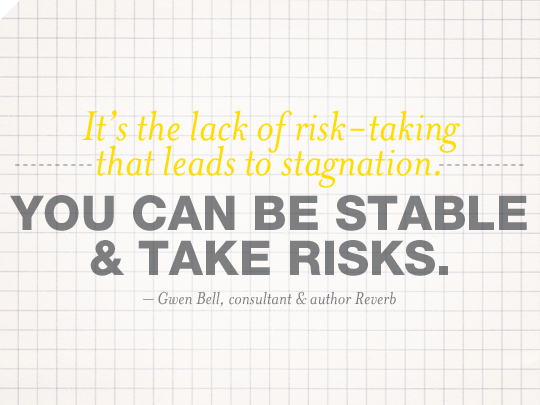In a recent blog post Dr. Helen Smith raised a question about the differences between men and women in business.
She asked, if women are more risk averse than men in business, will they be less successful?
Now as a matter of full disclosure I must say that I have a great many women in my life who are entrepreneurs: my mother, who owned a successful real estate business; a sister, who was one of the co-founders of our successful direct marketing business; a wife, who is an independent financial planner; and the two agencies that are helping to promote my book are run by successful women entrepreneurs. Not to mention that I have three daughters (no sons), and my wife and I just adopted a 14-year-old girl.
In other words, I am surrounded by women. And that is not a bad thing, I must say.
To put the statement in better context, Dr. Smith was echoing a similar sentiment as Seth Godin did in one of his blogs, does society need to reevaluate its perception of entrepreneurial risk? Dr. Smith’s concern is that more government involvement in our lives in the form of stricter regulations as well as an increase in benevolent social assistance creates less incentive to embrace risk. Especially for women who may be more risk averse in the first place. Godin feels that because we falsely assume that risk aversion has no cost it has become acceptable, even expected, thus society is conditioning itself to be less willing to embrace risk.
So has American society through the combination of more government involvement and the insulation of individuals from risk resulted in a culture where entrepreneurism is becoming less attractive? Are women paying a heavier cost simply because they may be more risk averse in the first place? And does the perception o f risk and entrepreneurship need to be changed to accurately reflect their relationship to personal success?
My entrepreneurial experience clearly showed me that embracing risk on a consistent basis provided a competitive edge that kept the business moving forward.
I also make the case for entrepreneurship as a vocation, regardless of gender. It provides a path for self actualization, individual accomplishment, and I believe is one of the greatest forms of self expression. My conclusion is that opportunity and risk are connected and therefore embracing, rather than avoiding risk, is necessary for long term business success.
I do not advocate free-form recklessness but operating within a specific framework (The Winner’s Framework) that will support an entrepreneurial pursuit with structural guidelines. However all entrepreneurs must be allowed to “color outside the lines” because opportunity and innovation happen within these undefined, risk-filled areas. Guidelines are not fences and a framework is simply to support the body of work.
My contention is that women are not as risk averse as society has determined.
It is my experience that women simply desire more defined plans than men. The more emotional sex, women, are far less so when it comes to business so therefore they require more structure. Looking back on my own business relationship with my sister Kathy there were many times I was ready to jump at an opportunity, right there and then, and she would always take a more measured approach. It caused plenty of conflict, yet provided a rational balance. If there was a worthy risk, we embraced it. How we came to that conclusion may have been different but the result the same.
A woman’s desire to enter the world of entrepreneurship can be as compelling as any man’s. A powerful motivational force that competitors should fear because of its shear primal nature is a woman’s need to prove she is an equal or, better than a man. Women are nurturers, the protectors of their flocks and when backed in a corner become ferocious competitors.
Historically, women have been given the role of running the business of family and left the risk taking to husbands.
But as our culture evolves into a more gender-equal society clearly those roles will change. Overall, there is a need to overhaul our educational system to recognize the role entrepreneurship plays in our economy as well as change the perception of risk to more accurately reflect its importance for opportunity and success.
Each of the women I mentioned earlier was willing to pursue her entrepreneurial dream and knowingly or not, had to at least embrace the risk of the leap of faith to start their businesses. Undoubtedly the gender bias they certainly encountered must have dampened their enthusiasm but because of their commitment to an entrepreneurial dream they continue (except for my mother who is retired) to embrace risk and enjoy the success they so deserve.
By Tom Panaggio, Author of The Risk Advantage: Embracing the Entrepreneur’s Unexpected Edge
Related Post: Why Your Company Should Never Stop Risk Taking






